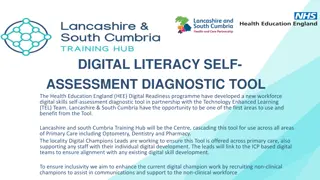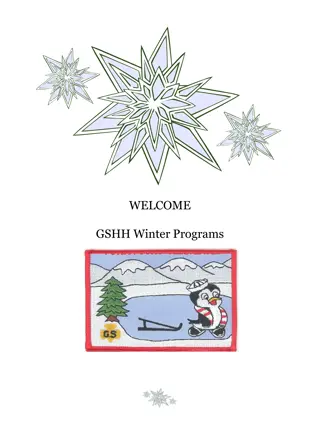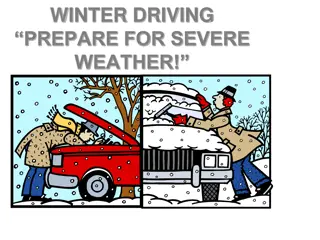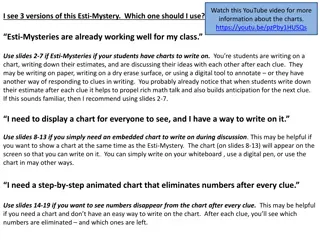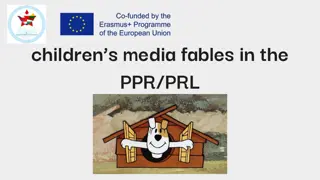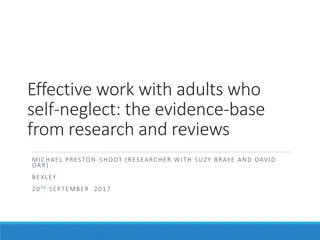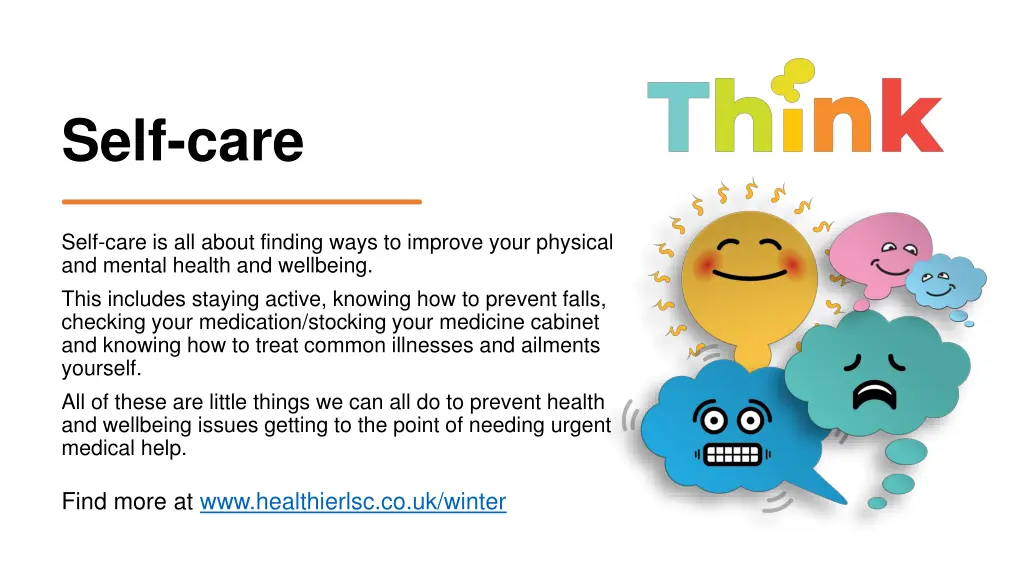
Self-Care Tips for Improving Physical and Mental Wellbeing
Discover valuable self-care tips for enhancing your physical and mental health, including staying active, preventing falls, managing medication, treating common ailments, and more. Learn how to take care of yourself to prevent health issues and promote overall wellbeing.
Download Presentation

Please find below an Image/Link to download the presentation.
The content on the website is provided AS IS for your information and personal use only. It may not be sold, licensed, or shared on other websites without obtaining consent from the author. If you encounter any issues during the download, it is possible that the publisher has removed the file from their server.
You are allowed to download the files provided on this website for personal or commercial use, subject to the condition that they are used lawfully. All files are the property of their respective owners.
The content on the website is provided AS IS for your information and personal use only. It may not be sold, licensed, or shared on other websites without obtaining consent from the author.
E N D
Presentation Transcript
Self-care Self-care is all about finding ways to improve your physical and mental health and wellbeing. This includes staying active, knowing how to prevent falls, checking your medication/stocking your medicine cabinet and knowing how to treat common illnesses and ailments yourself. All of these are little things we can all do to prevent health and wellbeing issues getting to the point of needing urgent medical help. Find more at www.healthierlsc.co.uk/winter
Athletes foot Dry your feet properly Wear fresh socks daily Avoid scratching Talc powder can help Ask a pharmacy for antifungal medicines Could last several weeks Find more at www.healthierlsc.co.uk/winter
Back pain See your GP if the pain doesn t ease after 3 days, if it moves to your chest or if you also have a fever Seek urgent advice through NHS 111 online if you feel numb or get pins and needles or if you lose control of your bowels or urination Try a hot bath or speak to a pharmacy for advice about rub on painkillers Find more at www.healthierlsc.co.uk/winter
Bites and stings Bites and stings are usually nothing to worry about. Soap and water will help. Don t use vinegar or bicarbonate of soda like those old wives tales say. It s an emergency if you have difficulty breathing, your neck or throat swell, you feel sick or feel faint or dizzy. Seek advice if symptoms last a few days or a large area becomes red and swollen. Find more at www.healthierlsc.co.uk/winter
Chicken pox Home remedies are often the best: Drink plenty of fluid. Bathe in cool water and pat skin dry (don t rub). Put socks on hands at night to stop from scratching. Stay off school. Stay away from pregnant people. Speak to a pharmacy about antihistamines. See your GP if: Skin is red, hot or painful. Don t use ibuprofen. Your child is dehydrated. You re pregnant. Your newborn baby has chicken pox. You have a weakened immune system. Find more at www.healthierlsc.co.uk/winter
Colds Seek advice if you: Have a temperature above 38 C. Have sharp pain in chest. Cough up blood. Have swelling in neck. Could last 1-2 weeks Get plenty of rest. Eat healthy and drink plenty. Paracetamol will help. Find more at www.healthierlsc.co.uk/winter
Conjunctivitis Conjunctivitis affects the eyes and can last up to two weeks. It s rarely anything too serious. Gently clean eyes with boiled water that has cooled. See your GP if you wear contact lenses and have red spots on your eyelids. Seek urgent advice if you: Have pain in the eyes. Avoid rubbing your eyes. Symptoms last longer than 2 weeks. Become sensitive to light. Wash your hands regularly. Have changes to your vision. Find more at www.healthierlsc.co.uk/winter
Constipation See your GP if: It lasts longer than 6 weeks. Your tummy is swollen. You are taking new medication. You ve been losing weight for no reason. You notice blood in your poo. Eat more fibre, such as fruit and vegetables. Paracetamol will help relieve pain. Your pharmacy can recommend over the counter medicines to help. Drink plenty of water. Find more at www.healthierlsc.co.uk/winter
Coughs Should only last a few weeks. See a GP if: Seek urgent advice through NHS 111 if: It does not improve after 3 weeks. Drink lemon and honey in hot water. You have choked on something. You re losing weight for no reason. Lozenges from your pharmacist will help. You cough up blood. You have chest or shoulder pain. It s difficult to breathe. Find more at www.healthierlsc.co.uk/winter
Cradle cap See a GP if: It does not start to clear up after a few weeks of treatment. It spreads over the body. The crusts bleed. Use baby safe moisturisers and shampoo on the scalp. It s perfectly normal. It could last up to a year. Don t pick the crusts or use olive oil. Find more at www.healthierlsc.co.uk/winter
Ear infections Seek emergency help if a child also has a rash that doesn t fade with pressure. See a GP if you have a temperature over 38 C or there are other symptoms too. Use painkillers and drink plenty of fluids. In children, check for signs of other illnesses. Find more at www.healthierlsc.co.uk/winter
Ear wax GPs don t always see people with ear wax, but you should seek advice if it hasn t cleared after 7 days or if you can t hear anything at all. Put a few drops of olive oil in your ear 2 or 3 times a day. Don t use cotton buds. It will usually work its way out. Find more at www.healthierlsc.co.uk/winter
Fever in children Should only last a week. Seek urgent help or go to A&E if your child has a fit or has a stiff neck or if you notice a new rash that doesn t fade with pressure. Seek advice from GP or NHS 111 if: Temperature is over 38 C. Child has difficulty moving. Child does not respond normally. Any swelling occurs. Make sure they drink plenty of fluid. Monitor their temperature. Use paracetamol or ibuprofen. Never both. Find more at www.healthierlsc.co.uk/winter
Headaches See your GP or use NHS 111 online if: Drink plenty of fluid. Avoid alcohol or caffeine. See your pharmacy about painkillers. Should only last about 24 hours depending on the type of headache. They become more frequent. You vomit. You notice a change in your speech. You are sensitive to light. You have other pains. Find more at www.healthierlsc.co.uk/winter
Heartburn and indigestion It s easy to mistake heartburn and indigestion for something more serious. Seek advice if you: Can last up to 2 weeks. Avoid fatty or fried foods, carbonated drinks and caffeine. You can buy antacids over the counter. Suffer pain or notice a swelling in your upper belly. Also feel pain in your chest. Vomit blood. Feel faint. Have a fever or weight loss. Find more at www.healthierlsc.co.uk/winter
Long-term conditions Colder weather can make long-term respiratory conditions worse. Speak to your GP or nurse about your management plan or if your conditions becomes much worse. Don t let it get so bad you need to go to hospital. Follow your management plan. Keep up to date with medication. Contact your pharmacy if you want to check your medication or how to use inhalers. Heat your home to at least 18 C. Dress warmly with plenty of layers. Keep active. Find more at www.healthierlsc.co.uk/winter
Preventing falls If you re a little unsteady on your feet, falling can be common but it can lead to more serious health issues. The stronger you are, the less likely you are to fall. There are some exercises you can do to improve muscle and balance such as: 1. Heel rises raising up onto your tiptoes. 2. Toe raises rocking back onto your heels (hold on to something if you need to!). 3. One leg balances simply stand on one leg for 10 seconds. 4. Walking heel to toe. 5. Chair stands try sitting down and standing up 10 times in a row, without using your hands.
Sore throat Seek more urgent advice through NHS 111 if you start drooling and find it difficult to swallow. Eat cool, soft food and drink warm drinks. Suck lozenges or even ice cubes. Cheap painkillers will help. Speak to a pharmacy. See your GP if you: Feel no better after 2 weeks. Get sore throats frequently. Have a high temperature over 38 C. Have difficulty breathing. Find more at www.healthierlsc.co.uk/winter
Sprains and strains It might hurt but it isn't an emergency. Seek more urgent advice through NHS 111 if: Remember PRICE: Protect the limb. Rest. Ice packs help. Compression bandages add support. Elevate. Can last 6-8 weeks You can t move an affected joint. You can t walk properly because of it. The area is deformed or lumpy. Find more at www.healthierlsc.co.uk/winter






